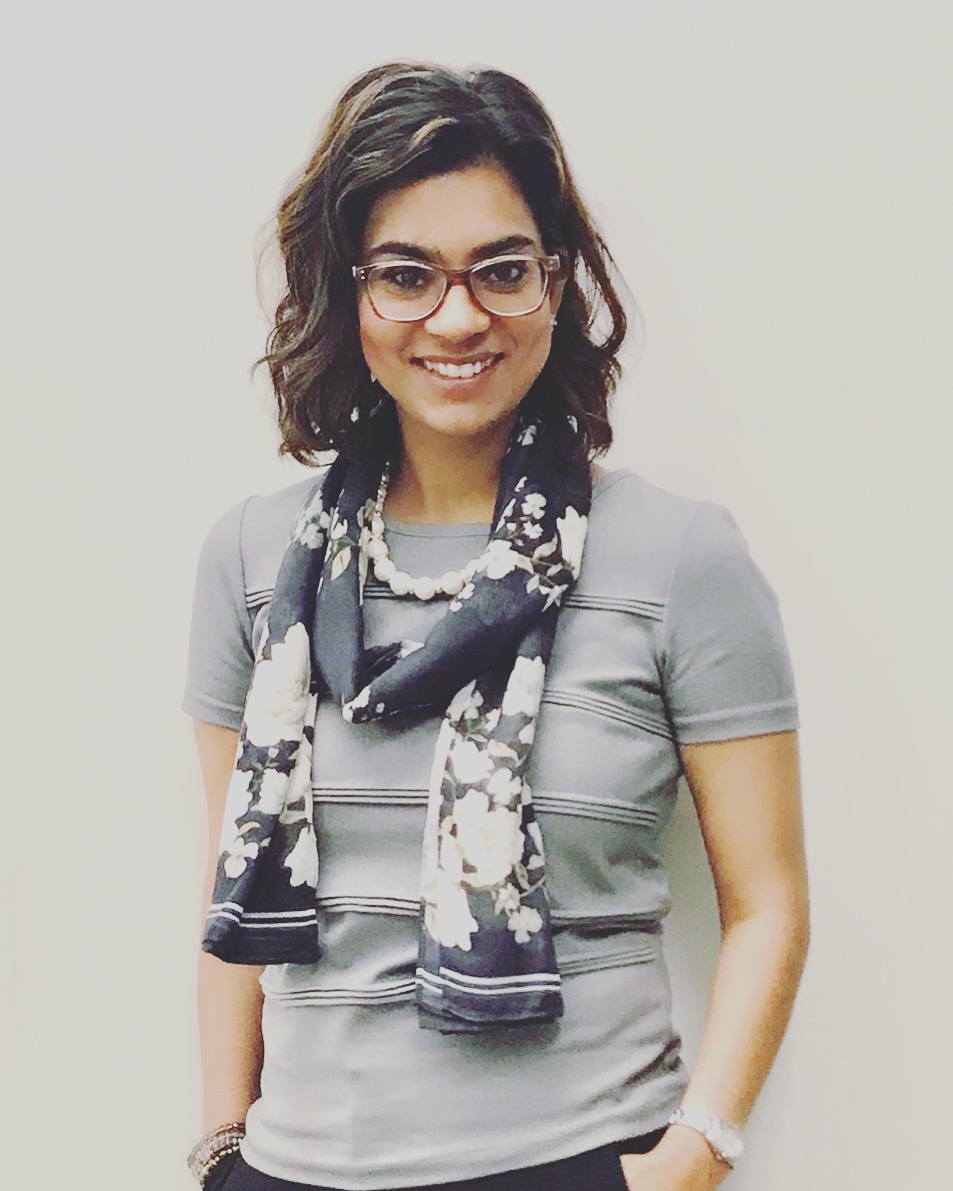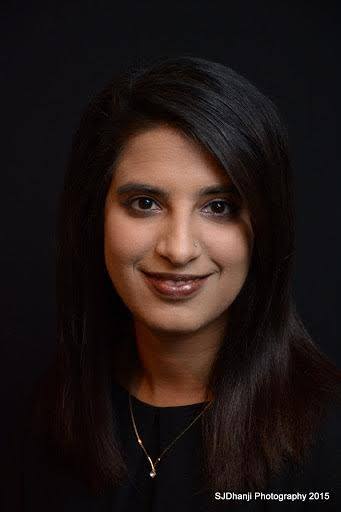Falling Into Fundraising: An Easy Transition

In our new series “Falling Into Fundraising,” Danisha Bhaloo-Shivji, manager of development and communications at the Boys & Girls Clubs Big Brothers Big Sisters of Edmonton & Area, will interview women who are Black, Indigenous, or persons of color to talk about their “unintentional” careers as fundraisers, what we can do to showcase the profession as a viable, intentional career choice, and how to increase the number of BIPOC women in the profession. In this interview, Shelina Dilgir, CFRE, talks about how she fell into fundraising, challenges she’s experienced as woman of color working as a fundraiser in foreign countries, and her future aspirations.
What motivated you to transition from fundraising for political campaigns to the charitable sector?
The simplest answer is because of the impact that working in Africa and Asia had on me. Seeing first-hand the challenges organizations on the ground there faced, and how some of my skills could make such a profound difference, resonated and stuck with me. When I came back to the United States following my overseas stint, I did go back to raising funds for political candidates, but it didn’t last long. The call of working and supporting organizations based overseas eventually pulled me back.
You had your "accidental" start in fundraising in a developing country. Can you share with us how that happened?
When I graduated with my Master of Arts in International Studies, I knew going overseas was my next step. Ideally, working with the United Nations, Aga Khan Development Network or some policy or think tank was my goal. For months following graduation, I went on several interviews with international Non-Governmental Organizations and spent time really trying to find what would be the right fit. It wasn’t too long thereafter when I finally narrowed down my choice—Voluntary Service Overseas. Its international offices are based in the United Kingdom, but my recruitment office was in Ottawa, Canada.
For almost three years, I spent time in Mongolia, Russia, China, Kenya, South Africa, Rwanda and Serra Leone. In all these countries, I worked with local nonprofit organizations, providing training on how to strengthen their organization in terms of proposal writing, communications and volunteer management. The goal was to strengthen and make these organizations self-reliable, so they could, in turn, not be so reliant on international organizations and better serve their community. It was during the marathon training and consultancy that I started to notice a theme: Most of these organizations needed support on how to pitch to international and national funders—how to ask for money, which is something that is not the norm in certain cultures.
I want to be clear, though, I learned a great deal from these local organization (sometimes more than I think I gave). But many of the national and international funders who determined funding to these organizations were trained in their international offices—some based in the U.S., UK, Canada or Japan—that had strict standards and processes that was often conveyed to these organizations in a way they could not understand. I saw this gap, and while I was learning these same processes, I had a bit more understanding having worked for some international funders in the past. I started to organize fundraising workshops and trainings on how to write proposals or pitch to funders.
I remember on time I taught a group of Mongolians how to jump from embassy to embassy on a Friday night (when the diplomatic community would host parties) to schmooze with these individuals and pitch them funding opportunities with their organization. Most of the time we were unsuccessful, but on a few occasions, it landed us a meeting with key individuals with the embassy and aid agency. Through this entire period, I realized I had a knack for this type of work. I was able to combine my interest in international development, public speaking, and advocacy and training. People started calling me the fundraising chief officer. I soon realized this would be an area I would continue to thrive in—hence the accidental fundraiser.
As a woman of color who has had fundraising jobs in a variety of countries, what were some key similarities and differences when it comes to asking for money, depending on which region you are in?
As a woman of color, in some countries, especially when I traveled outside the capital for meetings to rural areas, some community members had trepidation about working with a female and then as a woman of color. They didn’t see us equal to men, and they often felt [we] should be kept working in the home and not in the workforce. I’d have to say this was a challenge more so in the countryside, outside of the capital.
Another issue I encountered was when I’d ask for funds. As a fundraiser, that was my primary role but in certain communities and cultures, having a woman of color women ask them for money was awkward and they weren’t sure how to respond. In the beginning, I had my local colleague address these groups, but then, over time, I would do my best to develop stronger relationships with these individuals and have them understand my role.
Can you share with us one of your most challenging times as a woman of color fundraiser? What did you learn from this experience?
I was working in the Mongolian countryside and giving a presentation on fundraising and volunteer management. A group of men, in response to their frustration and refusal to hear from me, got up and left. It was a very deliberate and pronounced exit and made for an uncomfortable and tense moment. They told my translator she shouldn’t be asking for money and that it’s a male role. What I learned is that even though you can try and work together, you can’t please everyone, and you will need to be OK with that. Period! It’s easier said than done, but I try to practise that even in my work.
You're now settled in Canada, having received your CFRE a couple years ago. Can you tell us what your aspirations are for yourself and all women fundraisers in a post-pandemic world?
I do not regret any experience I’ve had both within Canada and particularly overseas. Each person I interacted with, shared a meal with, or went on road trip with, taught me something and built who I am. Not many have had the opportunities I’ve had, and I consider myself extremely fortunate and blessed!
My aspirations are to continue to find opportunities with other nonprofits where I could train their boards and C-level suites on the importance of fundraising and developing sound fundraising strategic plans. I see too many organizations out there that are still unsure how to develop their fundraising teams and program, and as a result they often falter soon after they establish themselves.
I’d also like to pursue identifying more women who are Black, Indigenous, and people of color to start careers in the field of revenue development and nonprofit management. Looking at the environment, it is still hard for BIPOC women to break that ceiling. My wish is that I can continue to help empower these women in the same way I was empowered and given a chance during my time overseas.


 Shelina Dilgir is committed to strengthening the nonprofit sector through education and training. She has dedicated her career to the sector for more than 15 years as a program manager, director and consultant. In these roles, she expanded programming, strengthened infrastructure and governance, and grew fundraising revenue. Shelina has worked with organizations of all sizes—from grassroots with no paid staff to a national and international offices with upward of $10 million in annual revenue. Shelina holds a Certified Fundraising Executive designation, is a member of the Association of Fundraising Professions (AFP) and completed an introductory course on the Fundamentals of Gift Planning sponsored by the Canadian Association of Gift Planners (CAGP). In her spare time Shelina enjoys baking, reading historical novels and volunteering with the Ismaili Muslim community.
Shelina Dilgir is committed to strengthening the nonprofit sector through education and training. She has dedicated her career to the sector for more than 15 years as a program manager, director and consultant. In these roles, she expanded programming, strengthened infrastructure and governance, and grew fundraising revenue. Shelina has worked with organizations of all sizes—from grassroots with no paid staff to a national and international offices with upward of $10 million in annual revenue. Shelina holds a Certified Fundraising Executive designation, is a member of the Association of Fundraising Professions (AFP) and completed an introductory course on the Fundamentals of Gift Planning sponsored by the Canadian Association of Gift Planners (CAGP). In her spare time Shelina enjoys baking, reading historical novels and volunteering with the Ismaili Muslim community. Danisha is a Certified Fund Raising Executive and works as the development and communications manager with Boys & Girls Clubs Big Brothers Big Sisters of Edmonton. In a volunteer capacity, Danisha is the chairperson of the Social Wellbeing Advisory Committee for the City of Calgary, a member of the Women's Impact Council for the Association of Fundraising Professionals (Global), and is a board member for United Way Centraide Canada. She also sits on the local United Way of Calgary’s Leader’s Cabinet and is the co-chair of Women United with United Way of Alberta Capital Region. Danisha has been recognized for her contributions to the community by Future of Good as one of their 21 Young Impact Leaders, the Government of Alberta Stars of Alberta Award, University of Alberta Alumni Award, Avenue Magazine Edmonton’s Top 40 under 40, Edmontonians' Magazine’s Sizzling 20 under 30, and Correctional Services of Canada.
Danisha is a Certified Fund Raising Executive and works as the development and communications manager with Boys & Girls Clubs Big Brothers Big Sisters of Edmonton. In a volunteer capacity, Danisha is the chairperson of the Social Wellbeing Advisory Committee for the City of Calgary, a member of the Women's Impact Council for the Association of Fundraising Professionals (Global), and is a board member for United Way Centraide Canada. She also sits on the local United Way of Calgary’s Leader’s Cabinet and is the co-chair of Women United with United Way of Alberta Capital Region. Danisha has been recognized for her contributions to the community by Future of Good as one of their 21 Young Impact Leaders, the Government of Alberta Stars of Alberta Award, University of Alberta Alumni Award, Avenue Magazine Edmonton’s Top 40 under 40, Edmontonians' Magazine’s Sizzling 20 under 30, and Correctional Services of Canada.
